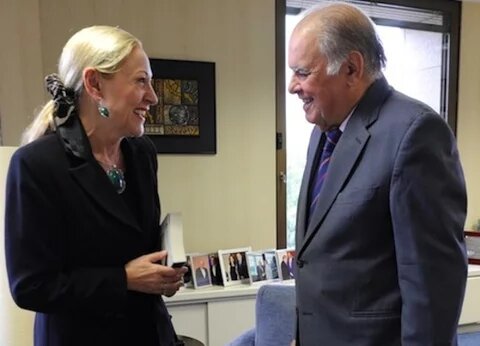The EU-LAC Foundation is organising a Reflection Forum, entitled “Latin America and the Caribbean in a Context of Change: Opportunities and Challenges for the EU”, that will take place in Berlin on the 6th of March 2014.
This event seeks to promote an informal political dialogue to debate the meaning and reach of the economic and political space that Latin America is constructing, its international insertion and future projection, at the same time as the opportunities that may arise from these factors for the EU in an international setting characterised by increasingly challenging demands for competitiveness and by fast and intense processes of change in power and wealth.
The rise of multiple regional and subregional agreements expresses the dynamism Latin America and the Caribbean are experiencing and deserve special attention to analyse new forms of association and regional action that have arisen in recent years in the social, political, and commercial arenas, as well as in inter-regional integration. This analysis is especially pertinent given the transformations that regionalism and the integration processes in Europe and Lain America and the Caribbean are experiencing, two regions that announced a strategic partnership based on shared values and principles including democracy, the Rule of Law, and human rights, as well as the aspiration towards a solidary and inclusive social model.
Some of the questions we would like to discuss include:
1. In a context of uncertainty, low global growth, and slowdown of the Asian economies, which political initiatives are especially important for the Latin American countries? What global political and economic risks do they need to bear in mind and what actions need to be taken to address them? What are the two or three challenges they will have to tackle?
2. Are there risks of economic relapse for Latin America and the Caribbean? Which countries and subregions run the greatest risks for throwbacks in their economic efforts? Do Latin America and the Caribbean have specific conditions of vulnerability we should worry about? What are the conditions that would provide Latin America and the Caribbean with greater adaptability to global uncertainty and change?
3. Can the European social model be a valuable point of reference to overcome Latin America and the Caribbean’s social challenges? Where to begin in middle-income and upper middle-income countries? Should Europe focus its links with Latin America exclusively on economic opportunities? What new types of focus does Latin America require?
4. Which new political initiatives should we expect regarding transnational issues and risks such as immigration, drugs, transnational crime, or adverse global economic conditions?
To address these issues, the Forum’s guest of honour, Mr Enrique V. Iglesias, will bring to the table his vast institutional and personal trajectory as an actor and observer of Latin American reality and especially his latest experience as Iberoamerican Secretary General, including the agenda of challenges and opportunities for Latin America and the Caribbean given the global setting and its implications for social reality and democratic governance in the region and in the world.
Although this forum is geared towards the general public, university students and postgraduates, researchers and academics, civil servants and members of interested institutions, due to the level and vision of the speakers, it may be of special relevance for Members of Parliament and government employees linked to foreign policy and, more specifically, involved in issues pertinent to the relationship with Latin America and the Caribbean.
